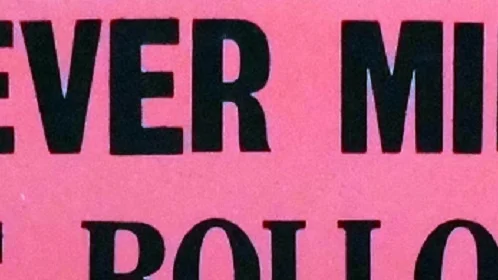Last week I heard a live satellite report given to BBC Radio 4's PM programme. I was struck my a mistake that the reporter made - it was just a simple slip - he said one thing when he must have meant to say another.
I've written in my last couple of posts about some of the issues surrounding the development of new media; I'm going to play on this theme once again this time around.
It's all very well that consumers should be looking forward to stepping up in the new media world to the status of content creator, but I wonder now if traditional broadcasters and publishers (henceforth, broadcasters) can really be looking forward to the relative step down that this represents for them. I'm not suggesting that traditional broadcasters are going to lose their status as professional organisations overnight as a result of so many oiks being capable of writing a blog; but if traditional broadcasters are going to keep up with the developments of new media, in pace, breadth, and flexibility, then they're going to have to prepare themselves for the consequences of a degree of redundancy at some level in the traditional editorial process.
The work of the consumer-turned-creator is in most cases going to be rough around the edges, and I'm not suggesting either that major broadcasters are going to want to emulate this style in order to 'fit in' to new media; even in those instances when broadcasters would want to fake not being edited, I don't think they're going to have a problem doing it. The real problem though is this: the limits of the traditional editorial process are not easily resolved with the limitlessness of new media broadcasting. When a major event happens, for example, I could comment on it in my blog, with words, pictures and sound, within a day of hearing about it on the news. While maintaining its editorial integrity, I imagine it would take the BBC current affairs television programme Panorama at least a week to compile and produce their special on the same event. Even Newsnight doesn't match the pace of the internet in its latest form ('web 2.0', the 'blogosphere'). Without making a new offering in doing so, it would be impossible for the BBC to issue considered comment on the same level as my blog.
The corollary is that it's impossible for my blog to issue considered comment on the same level as the BBC; though given the number of smart people in the world who don't work in tradtional broadcasting, but who are capable of blogging, and given the ongoing development of new media as mentioned above, I know which body of creators is soon likely to be driving the other. The answer probably would be for traditional broadcasters, as they invest in new media, to get as many of these smart people on board as possible. I'm under the impression that Guardian Unlimited is a leader in this field: they've got loads of bloggers writing for them.
Perhaps I've identified a strength of traditional broadcasters in a new media environment: they are the bastions of the old media model, editorial integrity and more. The demand for reliable information is only going to increase with the growing popularity of new media. What's more, editorial integrity aside, the fact is that not everyone wants 'new' media all the time; in fact very few people do. I was conducting some research the other day, looking at online men's magazine Monkey. The magazine has a graphical interface that mimics the paper magazine reading experience - you can drag the pages by the corner across the screen to turn them - but I found that this detail of the interface seemed only to emphasise the fact that this wasn't a real magazine. It's a problem because a paper magazine to relax with is probably what a substantial proportion of the men's mag audience wants; computers are for working on.
This example is only a technological limitation, but you get my point: there will always be a market for traditional media. I think traditional broadcasting mammoths should still be worried though if the way I'm describing their offering is beginning to sound niche rather than mainstream; it's my belief that increasingly that's what traditional media is set to become: niche.
But that means that new media, and its editorial process, is increasingly going to have to develop beyond its current niche status. I hope we'll see a honing of what are effectively instinctive production and editorial techniques. More than that, redundancies on one level in editing and production in new media will necessarily be compensated for by an expansion in the same on a higher level, in terms of what is produced, who produces it, when it is produced, and in what context (Joe Marchese described on Tuesday some of the new processes involved in managing new media). I guess maybe what I'm describing is an expansion of PR function in place of redundancies in editing, as if in new media editing is PR... but then isn't that kind of what it is already? (See my entry 'Our Innocence Lost' on artifice and engineering in new media.)
